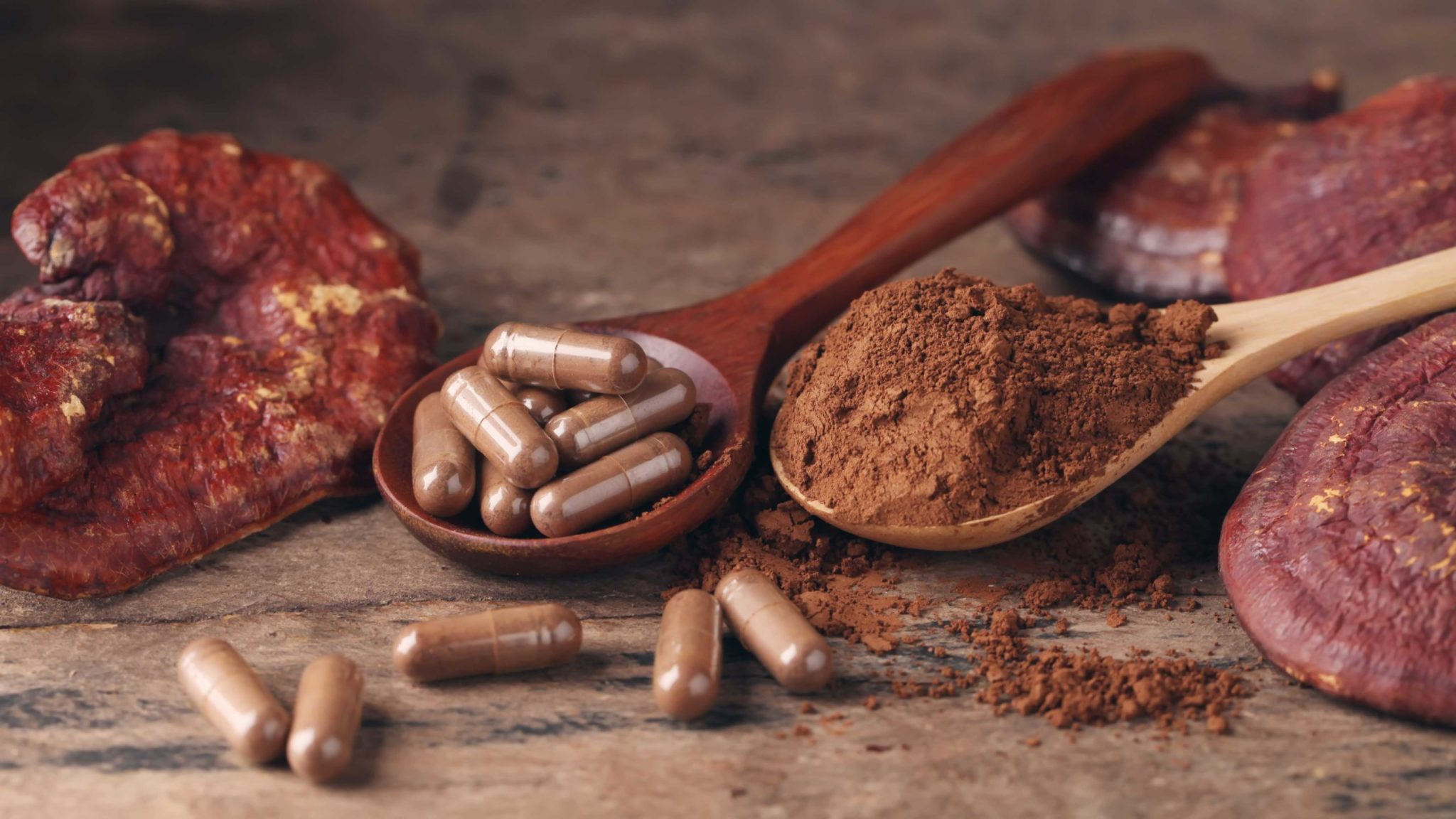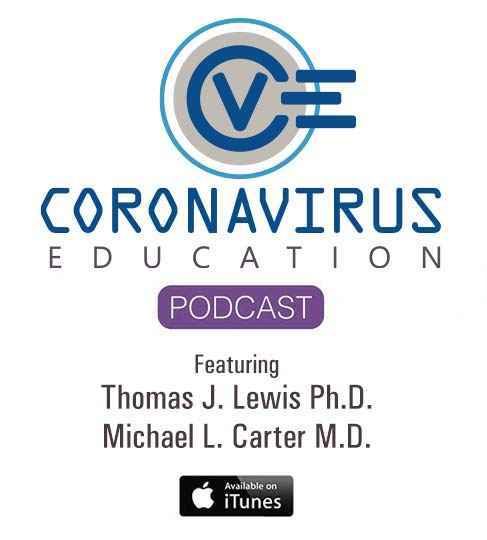Medicinal mushrooms have been traditionally used for health promotion and longevity in China and other East Asian countries for thousands of years. Touted for centuries for their immune support, edible medicinal mushrooms are gaining popularity today as a superfood. Over 270 species of mushrooms are classified as having medicinal properties.
Good Medicine Choice Network’s Thomas Lewis, PhD, discusses the benefits of medicinal mushrooms with Trent Austin, MD, a medicinal mushroom expert in this Coronavirus Education podcast, “Medicinal Mushrooms as a defense against illness explained by an expert.” Dr. Austin discusses how these foods have been used to reverse adverse health conditions in therapeutic capacities and outlines the top mushrooms for immune support.
The practitioners at Good Medicine Choice Network have used Immune Support Medicinal Mushroom Blend with Lion’s Mane as part of their treatment of chronically ill individuals with autoimmune diseases, chronic infections, pulmonary disease, fatigue and more.
Benefits of Edible Medicinal Mushrooms
Modern research has shown that medical mushrooms provide a rich source of nutrients and bioactive compounds that are associated with several health effects, including supporting the immune systemimmune system : the bodily system that protects the body from foreign substances, cells, and tissues by producing the immune response and that includes especially the thymus, spleen, lymph nodes, special deposits of lymphoid tissue (as in the gastrointestinal tract and bone marrow), macrophages, lymphocytes including the B cells and T cells, and antibodies.. Mushrooms have antiviral, antimicrobial and antioxidant properties.
Mushrooms are a good source of antioxidants and vitamins, and they are low in calories. Although they’re actually fungi, mushrooms are lumped in the vegetable category for cooking purposes Fungal glycans in mushrooms have been shown in pharmacological and structural studies to support multiple health-promoting effects, including improved general immunity, anti-tumor, anti-aging, anti-oxidation, hypoglycemic, hypolipidemic, anti-radiation, and other effects.*
“Fundamentally, mushrooms improve general immunity by fighting off competitive microorganisms, including bacteria and viruses,” Dr. Austin said. They have proven effective at reducing levels of candida, a major contributor to gut disturbances and are used in boosting immunity in people undergoing chemotherapy.
What are the properties of Medicinal Mushrooms?
Mushrooms are a source of many nutrients, including fiber, protein, a powerful antioxidant, selenium, and potassium. They also possess a unique blend of B-vitamins, of B2, B3, B6, and even B12, which are hard to find in other plant species. B vitamins are essential for converting food into fuel and help to keep the digestive system healthy. Many mushrooms also contain vitamin CVitamin C, especially at higher than RDA doses, provides numerous benefits due to its antioxidant and anti-inflammatory properties, including reducing chronic diseases like heart disease; lowering blood pressure by improving integrity of blood vessels; and boosting iron absorption. High-dose vitamin C has been shown to improve memory by increasing blood flow and reduce severity and duration of viral diseases, including the common cold., D and E.
Edible mushrooms possess several bioactive components, such as alkaloids, phenols, flavonoids, terpenes and polyunsaturated fatty acids, A polysaccharide commonly present in mushrooms, β-glucan, has been studied for its immune-stimulating and prebiotic properties.
A 2017 study in the International Journal of Food Sciences and Nutrition looked at different cooking methods and found that mushrooms release more of their nutrients when exposed to shorter cooking times. Check out this guide to cooking with medicinal mushrooms from the Academy of Culinary Nutrition.
Top 8 Mushrooms for Immune Support
Lions Mane
Animal models have demonstrated that lion’s mane may promote beneficial gut microbiota growth and be associated with reduced colon tissue damage in cases of inflammatory bowel disease.
Reishi Mushroom Extract
Known as the king of mushrooms, reishi mushrooms contain polysaccharides that demonstrate prebiotic effects and may increase counts of beneficial bacteria. Polysaccharopeptide (PSP) has been used widely as an adjuvant to chemotherapy with anti-tumor and broad immunomodulating effects. Reishi also contains the compound triterpene, which is known for its calming properties. These mood-boosting compounds may alleviate anxiety, depression and support better sleep.
Reishi is considered to be beneficial for conditions such as rheumatoid arthritis, ulcerative colitis and fibro myalgia.
Shittake Mushroom
A four-week clinical trial suggests that shiitake intake was associated with favorable changes in secretion patterns of various immune compounds. These changes may indicate an improvement in gut immunity and an anti-inflammatory response. Lentinan, a glucan derived from shiitake, is currently used as a complementary treatment for tumors, particularly in China and Japan.
Maitake Mushroom
Maitake mushrooms contain chemicals that might help fight tumors, stimulate the immune system, and lower blood sugar and lipid levels. Early research suggests that taking maitake mushroomMaitake mushrooms contain chemicals that might help fight tumors, stimulate the immune system, and lower blood sugar and lipid levels. Early research suggests that taking maitake mushroom polysaccharides (MMP) by mouth may lower blood sugar in people with diabetes and may help improve ovulation in women. polysaccharides (MMP) by mouth may lower blood sugar in people with diabetes and may help improve ovulation in women.
Oyster Mushroom
Oyster mushrooms contain significant levels of zinczinc ˈziŋk : a bluish-white metallic element that is ductile when pure but in the commercial form is brittle at ordinary temperatures and becomes ductile on slight heating, occurs abundantly in minerals, is an essential micronutrient for both plants and animals, and is used especially in alloys and as a protective coating in galvanizing iron and steel, iron, potassium, calciumDietary supplement used to promote bones, muscles, and heart to function properly. Bones in the body do not producer calcium, although it can be taken through foods and vitamins. Calcium in the bloodstream is used to send nerve signals, release hormones like insulin and regulate how muscles and blood vessels contract and dilate., phosphorous niacinNiacin is a form of vitamin B3. It is found in food. Niacin is also produced in the body from tryptophan, which is found in protein-containing food. Niacin helps the body break down carbohydrates, fats and proteins into energy, according to the University of Maryland Medical Center. In addition, it plays a role in gland and liver function., riboflavin, vitamin C, as well as folic acid, vitamin B 1 and B 2. Oyster mushrooms also contain ergothioneine, a unique antioxidant exclusively produced by fungi. There is evidence that oyster mushrooms may improve the filtration rate in the kidneys and help regulate blood pressure.
Chaga Mushroom
ChagaChaga mushrooms have been used for centuries in traditional medicine to help balance the mind and body. Recognized for their anti-aging, antimicrobial properties, people have also used them to help support immune function, fight inflammation, and aid in proper digestion. mushrooms have been studied on human cells in vitro as well as various animal studies. Chaga may lower blood sugar and cholesterolcholesterol cho·les·ter·ol | \ kə-ˈle-stə-ˌrōl Cholesterol is a waxy, fat-like substance that's found in all the cells in your body. Your body needs some cholesterol to make hormones, vitamin D, and substances that help you digest foods. Your body makes all the cholesterol it needs. Cholesterol is also found in foods from animal sources, such as egg yolks, meat, and cheese. levels, and it also has blood thinning properties. In laboratory studies by the Memorial Sloan-Kettering Cancer Center, chaga demonstrates anti-cancer activity as well as anti-inflammatory, antiviral and immune-stimulating properties.
Cordyceps Powder
Cordyceps are a rare parasitic fungi that grows on the larvae of insects only in the high-altitude region of northeast India. The remains of the insect and fungi have been hand-collected and used in traditional Chinese Medicine to treat fatigue, sickness, kidney disease and low sex drive.
Lab studies performed in animals and test tubes suggest cordyceps can reduce leukopenia, a condition that lowers white blood cell counts which can decrease the body’s defenses and increasing the risk of infectioninfection in·fec·tion | \ in-ˈfek-shən a : the state produced by the establishment of one or more pathogenic agents (such as a bacteria, protozoans, or viruses) in or on the body of a suitable host b : a disease resulting from infection.
Turkey Tail Powder
In traditional medicine, turkey tail has been used therapeutically for fungal infections, cancer, and acquired immunodeficiency syndrome (AIDSAIDS ˈādz : a disease of the human immune system that is characterized cytologically especially by reduction in the numbers of CD4-bearing helper T cells to 20 percent or less of normal thereby rendering the subject highly vulnerable to life-threatening conditions (such as Pneumocystis carinii pneumonia) and to some (such as Kaposi's sarcoma) that become life-threatening and that is caused by infection with HIV commonly transmitted in infected blood especially during illicit intravenous drug use and in bodily secretions (such as semen) during sexual intercourse ). Potential benefits include improved immune function and anti-oxidant and anti-tumor effects.



No comments yet. Be the first one to leave a thought.